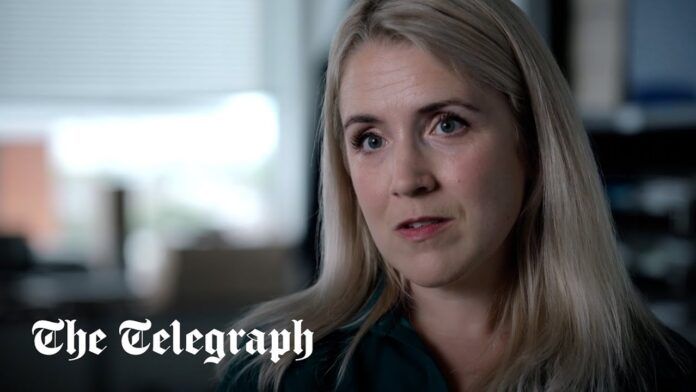A false arrest that ended in tragedy: Unveiling the dark series of events that led to Sarah Everard’s murder
Three years ago, the United Kingdom was shaken by a heinous crime that highlighted the abuse of power and trust. Metropolitan Police officer Wayne Couzens used his position to execute a deceitful ‘arrest’ of 33-year-old Sarah Everard under the guise of violating lockdown rules. This act of betrayal led to the brutal rape and murder of the young marketing executive, leaving a scar on the consciousness of women nationwide.
BBC One’s documentary “Sarah Everard: The Search for Justice” delves into the Metropolitan Police’s investigation and the subsequent review of the force, revealing an internal culture marred by discrimination, bullying, racism, and misogyny. Couzens, now 51, was sentenced to a whole-life order in September 2021 for his crimes, along with facing conviction for indecent exposure.
On the night of March 3, 2021, Sarah Everard disappeared while walking home from a friend’s flat in Clapham, South London. Expected to arrive home in approximately 50 minutes, she was never seen alive again. Dressed in a green rain jacket, navy blue trousers, and distinctive trainers, her last moments were captured on CCTV, setting off a nationwide search and outcry.
Couzens, exploiting his authority, orchestrated a fake arrest, handcuffing Everard under the pretense of a Covid patrol violation. Eyewitnesses, misled by Couzens’ police affiliation, assumed a legitimate law enforcement activity. This grave misinterpretation led to Everard’s tragic fate, as Couzens transported her to a secluded area where he committed the atrocious acts.
Prosecutor Tom Little QC described to the court how Couzens tricked Everard into compliance, leading her to an 80-mile journey of horror. The detailed recount of the events underscored Couzens’ manipulation and premeditation, using his policing knowledge to his vile advantage.
The documentary also sheds light on the internal reaction within the Metropolitan Police upon the realization that Couzens was one of their own. Detective Chief Inspector Katherine Goodwin recalled the shock and disbelief that reverberated through the force, especially as Couzens was later found to have a history of indecent exposure.
Sarah Everard’s murder is a stark reminder of the vulnerability women face and the critical need for reform within police forces to eradicate such abuses of power. Her story, though heartbreakingly tragic, has sparked a movement demanding change and accountability to ensure the safety and trust in those sworn to protect us.
